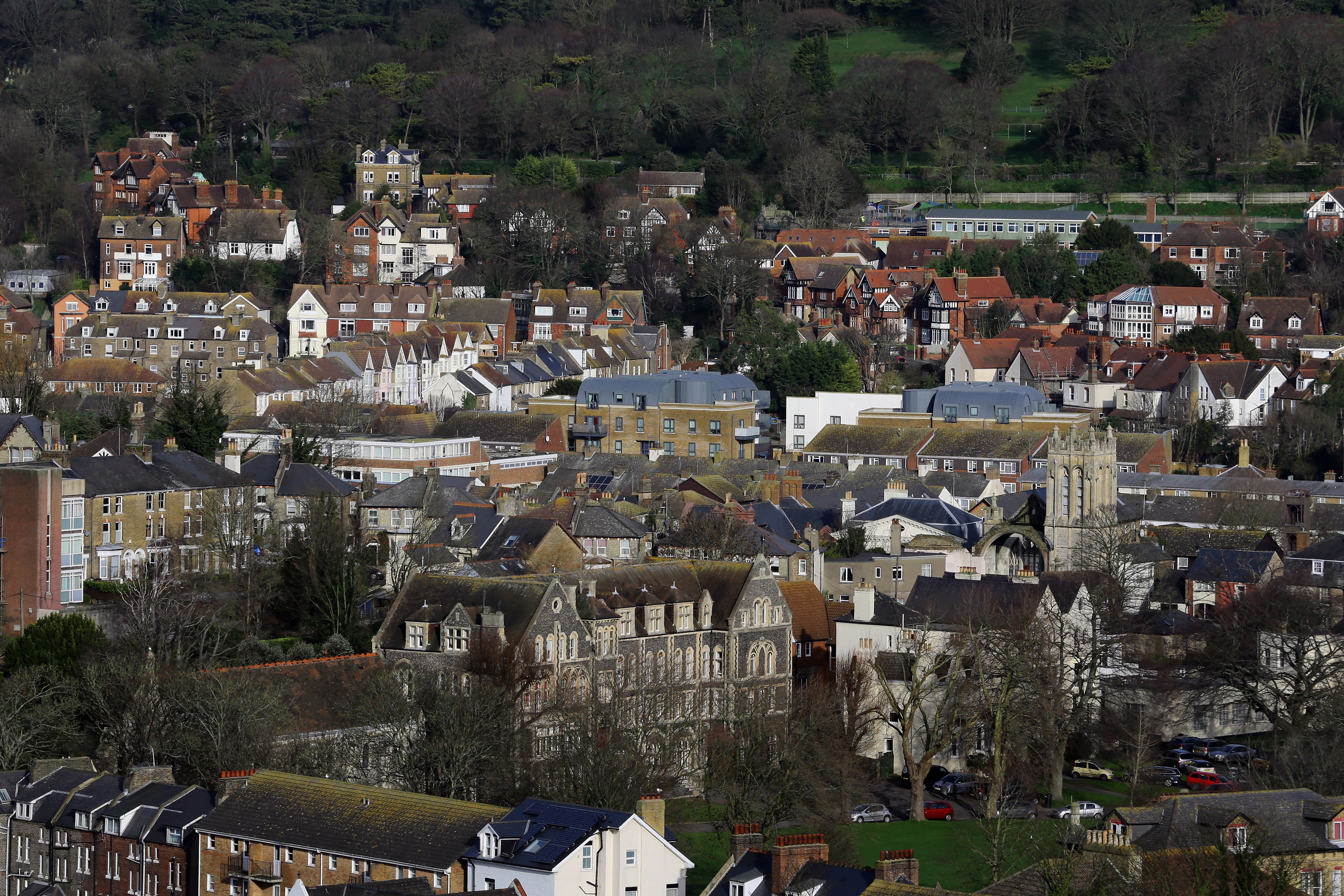First-time homebuyers need £53k cash deposit as house prices march higher
Halifax revealed that the average house price jumped by £3,785 month on month in January
Your support helps us to tell the story
From reproductive rights to climate change to Big Tech, The Independent is on the ground when the story is developing. Whether it's investigating the financials of Elon Musk's pro-Trump PAC or producing our latest documentary, 'The A Word', which shines a light on the American women fighting for reproductive rights, we know how important it is to parse out the facts from the messaging.
At such a critical moment in US history, we need reporters on the ground. Your donation allows us to keep sending journalists to speak to both sides of the story.
The Independent is trusted by Americans across the entire political spectrum. And unlike many other quality news outlets, we choose not to lock Americans out of our reporting and analysis with paywalls. We believe quality journalism should be available to everyone, paid for by those who can afford it.
Your support makes all the difference.First-time buyers need to find more than £50,000 for a deposit, new figures reveal, as the country’s housing crisis shows little sign of abating.
In its latest housing index, lender Halifax said that the average house price jumped by £3,785 month on month in January – which is the fourth month in a row of increases.
The price increase takes the average UK house price to £291,029.

High interest rates and growing house prices have combined to force homebuyers to hoard ever more cash. The average household must save for 10 years to gather the required cash.
The average deposit for a first-time buyer is an eye-watering £53,414 – around 19 per cent of the purchase price.
Kim Kinnaird, director of Halifax Mortgages, said: “This is the fourth consecutive month that house prices have risen and, as a result, the pace of annual growth is now 2.5 per cent, the highest rate since January last year.
“The recent reduction of mortgage rates from lenders as competition picks up, alongside fading inflationary pressures and a still-resilient labour market, has contributed to increased confidence among buyers and sellers. This has resulted in a positive start to 2024’s housing market.
“However, while housing activity has increased over recent months, interest rates remain elevated compared to the historic lows seen in recent years and demand continues to exceed supply.
“For those looking to buy a first home, the average deposit raised is now £53,414 – around 19 per cent of the purchase price. It’s not surprising that almost two-thirds of new buyers getting a foot on the ladder are now buying in joint names.
“Looking ahead, affordability challenges are likely to remain and further modest falls should not be ruled out, against a backdrop of broader uncertainty in the economic environment.”
In analysis published last week, the mortgage-lending giant said that some 63 per cent of first-time buyer mortgages taken out between January and December 2023 were in joint names, involving two or more people.
Escalating prices mean that the same percentage of first-time buyers are expected to receive help from the “Bank of Mum and Dad” to get on the housing ladder.
According to Savills, the financial contribution totalled £8.8bn in 2022, an increase of almost £4bn since 2019, which is a result of the more stringent mortgage market and higher deposits needed.
If you don’t have the luxury of having parents able to lend you or give you any money, then you will have to save yourself.
According to the Office for National Statistics, the median annual earnings in the UK is £34,963. If you managed to save £450 each month from that salary, it would take you around 10 years to save up for a deposit.
This is consistent with research from Generation Rent last year who said it would take 9.6 years to save up for a deposit. The campaign group said the worst impacted area is London, where it would take you an astonishing 18.3 years to save up for a deposit.
The average first-time deposit of £53,414 is lower than the average deposit of £62,471 in 2022, but considerably higher than the sums needed in 2018 (£44,411) and 2013 (£32,031).
Average house prices followed by the annual change, according to Halifax:
East Midlands, £236,862, 0.5%
Eastern England, £327,270, minus 2%
London, £529,528, minus 0.4%
North East, £169,505, 2%
North West, £229,707, 3.2%
Northern Ireland, £195,760, 5.3%
Scotland, £206,087, 4%
South East, £379,220, minus 2.3%
South West, £295,399, minus 1.4%
Wales, £219,609, 4%
West Midlands, £251,185, 0.7%
Yorkshire and the Humber, £207,602, 2.8%
Additional reporting by PA

Join our commenting forum
Join thought-provoking conversations, follow other Independent readers and see their replies
Comments